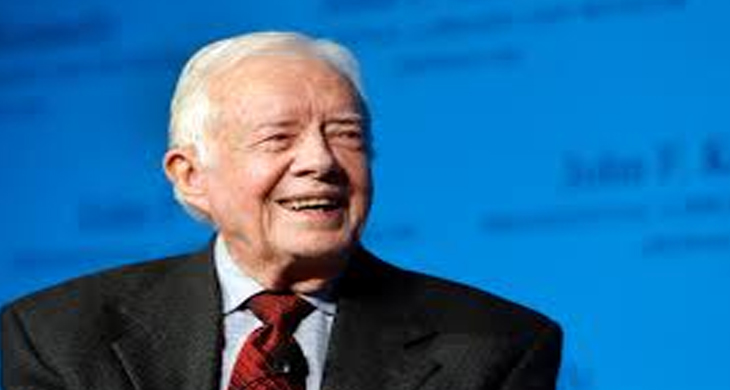Former U.S. President Jimmy Carter, now 99 years old, has chosen to discontinue medical treatment and enter hospice care, a decision that reflects both his personal values and the progression of his health. According to a statement released by the Carter Center, this transition comes after several “brief hospital stays.” Rather than pursuing further medical interventions, Carter has opted to spend his remaining time in the comfort of his home, surrounded by family and loved ones. The decision to enter hospice care signifies a focus on maintaining quality of life rather than extending it through aggressive treatments.
Hospice care is typically provided to patients who are nearing the end of life, with an emphasis on comfort, pain relief, and emotional support. For Carter, this means prioritizing peace and dignity in his final days. His choice aligns with the compassionate approach he’s demonstrated throughout his life, both during his presidency and in the years following. The Carter Center, founded by Jimmy and Rosalynn Carter in 1982, has been a symbol of his commitment to peace, democracy, and humanitarian work worldwide.
Carter’s health has been a concern in recent years. In 2015, he was diagnosed with metastatic melanoma that had spread to his brain and liver, but after undergoing treatment, he announced later that year that he was cancer-free. Since then, Carter has faced various health challenges, including surgeries and hospitalizations. His remarkable resilience, even into his late 90s, has been a testament to his enduring strength and determination. Despite these struggles, he has remained active, teaching Sunday school and continuing his work with Habitat for Humanity, building homes for those in need.
The transition to hospice care underscores the reality that even a figure as resilient as Jimmy Carter must confront the limitations that come with advanced age. It is a poignant moment for many Americans who have admired his lifelong dedication to public service. As the 39th president of the United States, Carter’s tenure from 1977 to 1981 was marked by significant achievements in diplomacy, most notably the Camp David Accords, a historic peace agreement between Egypt and Israel. His post-presidential years, however, are where he arguably made his most lasting impact, winning the Nobel Peace Prize in 2002 for his efforts in promoting human rights, alleviating suffering, and fostering global peace.
In this stage of his life, Carter’s decision reflects the values he has always championed—humility, compassion, and a deep sense of duty to his family and community. The former president has often spoken about the importance of living with purpose, and his final chapter is no different. By choosing hospice care, Carter is opting for comfort and dignity over continued medical intervention, a choice many people face in their own lives or within their families.
The Carter family, including his wife Rosalynn, who has stood by his side for over 75 years, remains a source of strength and support. The couple has been a symbol of enduring partnership, not just in marriage but in their collective work for social justice and humanitarian causes. Rosalynn, who is now 96, has also faced her own health challenges but continues to be an unwavering presence in Carter’s life.
Jimmy Carter’s legacy will undoubtedly live on through the work of the Carter Center, which has touched the lives of millions around the world through its efforts to combat disease, promote democracy, and advocate for mental health. As he spends his final days in peace at home, the nation reflects on the extraordinary contributions he has made to both the United States and the world.
In these moments of reflection, Carter’s choice to embrace hospice care is a reminder of the grace with which he has led his life. The path he has chosen is not just about stepping away from medical treatment but about embracing the natural progression of life with the same dignity and courage that have defined his public and private persona. His enduring message is one of peace, compassion, and service, values that have guided him through both the triumphs and challenges of his remarkable journey.




